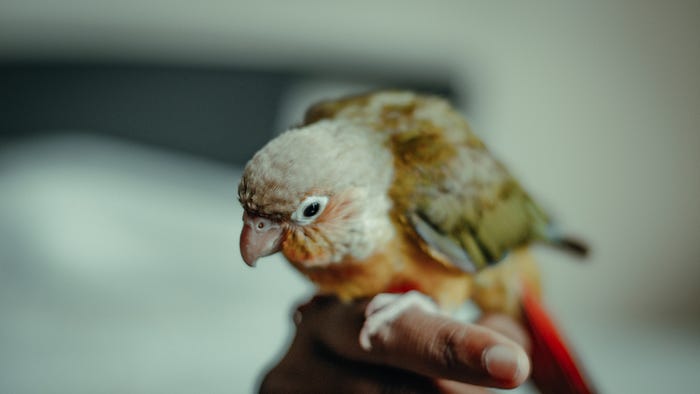Introduction
Welcome to our comprehensive guide to pineapple conure, the delightful parrot species known for its vibrant colors and playful personality. In this article, we will delve deep into the world of pineapple conures, providing you with valuable insights, expert advice, and interesting facts. Whether you are a first-time pet owner or an experienced avian enthusiast, this guide will equip you with the knowledge you need to care for and understand these captivating birds.

What are Pineapple Conures?
Pineapple conure, scientifically known as Pyrrhura molinae, are small to medium-sized parrots native to South America. They are part of the conure family, which encompasses various species known for their intelligence and charming personalities. The pineapple conure, specifically, is highly sought after for its striking appearance, characterized by a vibrant combination of yellow, green, and orange feathers.
Physical Characteristics
One of the most distinctive features of pineapple conures is their beautiful plumage. Their body is predominantly green, with patches of bright yellow on their chest, head, and wings. These yellow patches resemble the texture and coloration of a pineapple fruit, hence the name “pineapple conure.” Additionally, they have a reddish-orange blush on their forehead and cheeks, adding to their overall visual appeal.
Pineapple conures typically grow to about 10 inches (25 centimeters) in length, with a wingspan of approximately 8 inches (20 centimeters). Their beaks are short and strong, allowing them to crack open various types of nuts and seeds — a vital part of their natural diet.
Natural Habitat and Distribution
In the wild, pineapple conures can be found in the lowland forests of Bolivia, Brazil, Paraguay, and Argentina. These regions provide the perfect environment for these parrots, offering an abundance of trees, fruits, and seeds. Pineapple conures are highly adaptable and can also thrive in areas of human habitation, such as agricultural lands and suburban neighborhoods.
Behavior and Temperament
Pineapple conures are known for their friendly and affectionate nature. They form strong bonds with their human caregivers and enjoy spending quality time interacting with them. These birds crave mental stimulation and require regular socialization to prevent boredom and loneliness. Providing them with toys, puzzles, and regular out-of-cage time can greatly enhance their overall well-being.
Furthermore, pineapple conures are intelligent creatures that possess impressive problem-solving skills. They can be trained to perform various tricks and even mimic human speech to some extent. However, it’s important to note that individual birds may vary in their ability and willingness to learn.
Housing and Cage Requirements
When it comes to housing pineapple conures, a spacious cage is essential. The cage should be large enough to accommodate their wingspan, allowing them to exercise and move around comfortably. The recommended minimum size for a pineapple conure cage is 24 inches (60 centimeters) in length, width, and height.
It’s crucial to furnish the cage with a variety of perches and toys to keep these intelligent birds mentally engaged. Natural wood perches of different thicknesses can help maintain their foot health, while toys that encourage foraging and chewing can provide mental stimulation and prevent boredom.
Diet and Feeding
Proper nutrition is vital for the health and well-being of pineapple conures. In the wild, they primarily feed on fruits, berries, nuts, seeds, and various vegetation. As a pet owner, it’s important to replicate this balanced diet in captivity. A high-quality commercial pellet formulated specifically for conures can serve as the foundation of their diet.
Supplementing the pellet diet with fresh fruits and vegetables, such as apples, bananas, carrots, and leafy greens, is highly recommended. However, certain foods should be avoided, including avocado, chocolate, caffeine, and any products containing high levels of sugar or salt. Always consult with a veterinarian for a detailed dietary plan tailored to your pineapple conure’s specific needs.
Health and Care
Maintaining good health is essential for the longevity of your pineapple conure. Regular veterinary check-ups are crucial to monitor their overall well-being and detect any potential health issues early on. Additionally, ensuring a clean and hygienic environment, providing a well-balanced diet, and offering regular exercise are all important factors in promoting their optimal health.
Pineapple conures are generally hardy birds, but they can be susceptible to certain diseases and conditions. Common health concerns include respiratory infections, feather plucking, psittacosis, and vitamin deficiencies. To mitigate these risks, it is important to provide a stress-free environment, maintain proper hygiene, and seek immediate veterinary attention if any signs of illness or discomfort are observed.
Training and Socialization
To foster a strong bond with your pineapple conure and prevent behavioral issues, training and socialization are key. Start with basic commands such as “step up” and “step down” to establish trust and build a foundation for more advanced training. Positive reinforcement techniques, such as treats and praise, work well with these intelligent birds.
Socialization is equally important to ensure that your pineapple conure feels comfortable around different people and experiences. Expose them to various stimuli, such as new environments, sounds, and interactions, from an early age. This will help prevent fear and aggression while promoting a well-adjusted and sociable companion.
Conclusion
In conclusion, pineapple conures are captivating parrots with their striking colors, playful personalities, and remarkable intelligence. This comprehensive guide has provided you with valuable insights into their physical characteristics, natural habitat, behavior, care requirements, and more. By following the tips and guidelines outlined in this article, you can create a loving and enriching environment for your pineapple conure, ensuring a long and fulfilling companionship.
Remember, owning a pineapple conure is a commitment that requires time, effort, and a genuine passion for these wonderful birds. With proper care, training, and socialization, your pineapple conure can become a cherished member of your family, bringing joy and companionship for years to come.
Comments
Post a Comment